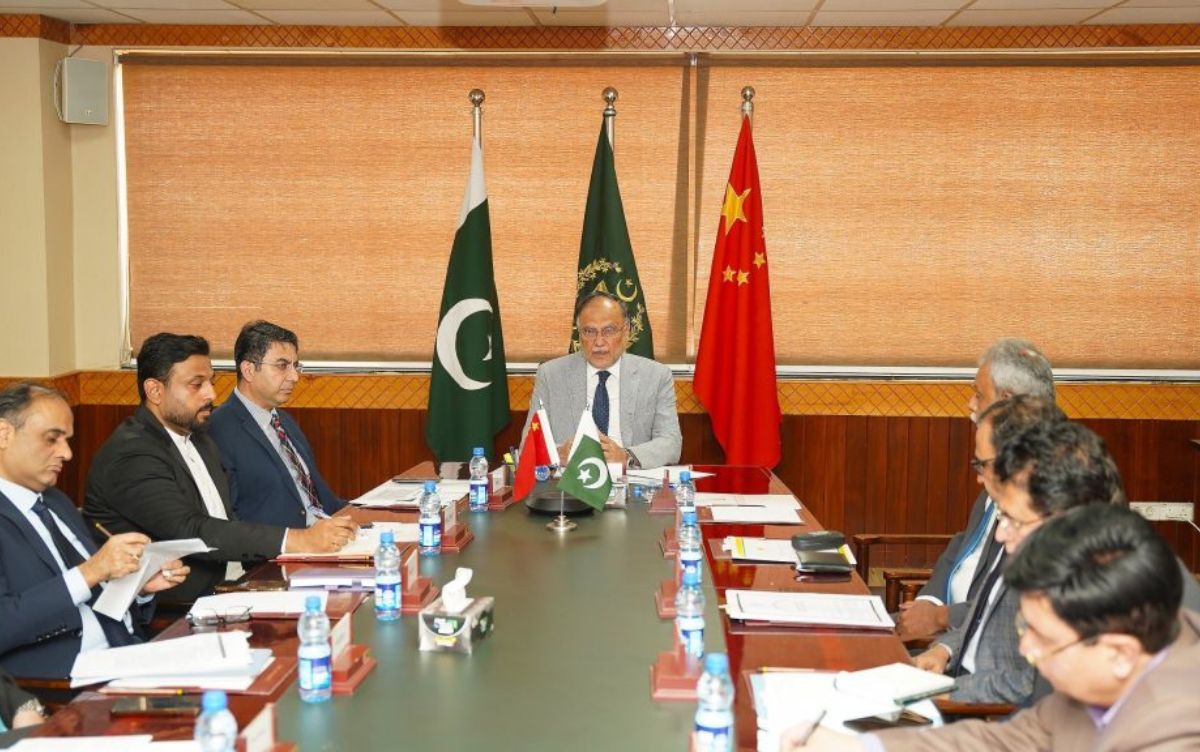Pakistan to Speed Up CPEC 2.0 Projects for Sustainable Growth
Federal Minister for Planning, Development and Special Initiatives, Professor Ahsan Iqbal, chaired the first review meeting following the 14th Joint Cooperation Committee (JCC) session of the China–Pakistan Economic Corridor (CPEC). The meeting focused on evaluating progress under CPEC Phase-II and identifying priority areas for accelerated implementation.
During the session, the minister instructed relevant ministries to design and submit new project proposals under CPEC 2.0 while ensuring that facilities at Special Economic Zones (SEZs) are developed on a fast-track basis. He stressed that all initiatives must deliver lasting socio-economic benefits to the public.
 P.c. China Pakistan Economic Corridor
P.c. China Pakistan Economic Corridor
Ahsan Iqbal remarked that the successful 14th JCC session marked the beginning of a new chapter in Pakistan–China cooperation. He announced that the 15th JCC meeting will be hosted in Pakistan to celebrate 75 years of diplomatic relations between the two nations.
Highlighting the formal launch of CPEC Phase-II, the minister said the new phase focuses on agriculture, industry, information technology, and people-to-people partnerships. He noted that it would encourage private sector participation and enhance youth skill development across Pakistan.
According to Iqbal, CPEC Phase-II will provide a stronger base for deepening Pakistan–China relations, driving employment, investment, and technology transfer. He added that these projects will contribute significantly to increasing exports and achieving sustainable economic growth.
He also pointed out that Pakistan’s Five Es (Exports, Energy, Environment, E-Pakistan, and Equity) are being aligned with China’s Five Corridors to ensure a unified development strategy. Strong bilateral cooperation, he noted, guarantees economic resilience and long-term stability.
The minister further highlighted the operational success of the desalination plant in Gwadar, established with Chinese collaboration, which has greatly improved the local water supply.
He reaffirmed that just as CPEC Phase-I was implemented with consistency and dedication, Phase-II would be carried out with equal commitment. Under the Livelihood Corridor initiative, Pakistan will adopt the Chinese model for uplifting underdeveloped regions.
Ahsan Iqbal also revealed that a Memorandum of Understanding (MoU) has been signed with China’s Development Research Center (DRC), which will support Pakistan in improving its export strategy and policy-making capacity.